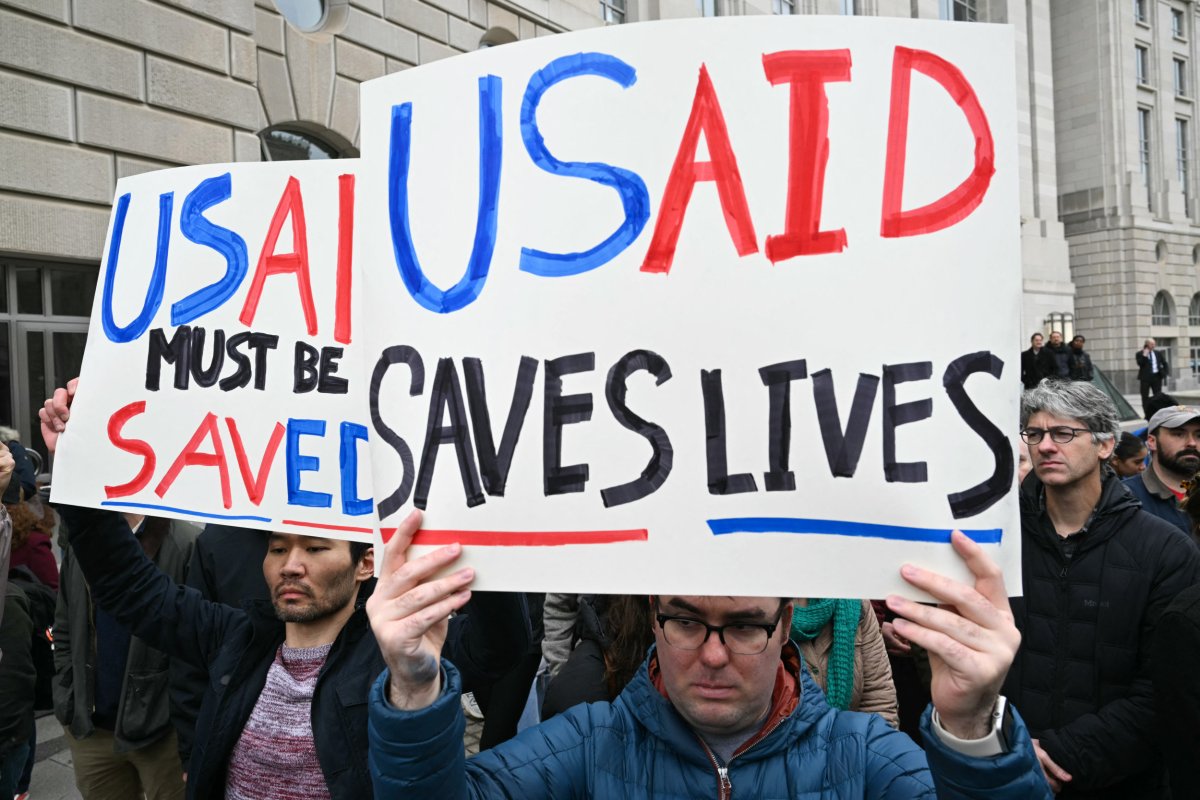More than 500,000 tons of food risks "going to waste" as a result of the Trump administration suspending most overseas aid for 90 days according to Hearst Newspapers, which cites emails it has reviewed from "an international food agency."
Some of this food is currently stockpiled at various U.S. ports including Boston, New York and Miami. Houston's port alone has around 31,000 tons of food in storage, and at risk of deterioration, according to the email.
Newsweek contacted the White House, the U.S. Agency for International Development (USAID) and the U.S. Department of State via email, telephone and voicemail message, and online press inquiry form respectively on Friday outside of regular office hours.
Why It Matters
After criticizing the function of USAID during his election campaign, shortly after his second inauguration on January 20, President Trump signed an executive order introducing a "90-day pause" to the majority of U.S. foreign development assistance, pending reviews of its effectiveness and utility to U.S. foreign policy.
This order covered Food for Peace, a program launched by President Eisenhower in 1954 which sends U.S. agricultural surplus to developing nations. The suspension of this scheme is preventing the distribution of thousands of tons of aid, some of which is being stored at major U.S. ports and is in danger of going off. The potential waste of food aid is likely to spark criticism, given many Americans' current struggles to meet inflationary food bills.
What To Know
The Houston Chronicle reports that Hearst Newspapers, a division of its parent company Hearst Communications, has received emails from "an international food agency" claiming more than 500,000 tons of U.S. government food aid, valued at over $450 million, is "now at risk of going to waste" following Trump's aid freeze.
According to the publication this includes 31,000 tons of food that is currently near the port in Houston, Texas.
Citing unnamed officials The Washington Post claimed over $340 million worth of U.S. food aid, including what, rice and soybeans, is currently stuck due to the new president's executive order on foreign aid.

On Thursday the Trump administration announced plans to dramatically cut the number of USAID employees from the current figure in the thousands to just 300.
As part of this change thousands of USAID employees will be put on paid leave from Friday night according to the agency.
Earlier this week billionaire business tycoon Elon Musk, who heads the newly created Department of Government Efficiency (DOGE), described USAID as "beyond repair" and claimed Trump had agreed to shut it down entirely.
What People Are Saying
White House spokesperson Anna Kelly said: "President Trump is ensuring that taxpayer-funded programs at USAID align with the national interests of the United States, including protecting America's farmers. He will cut programs that do not align with the agenda that the American people gave him a mandate in November to implement and keep programs that put America First."
Speaking to The Washington Post Dave Salmonsen, the American Farm Bureau Federation's senior director of government affairs, said: "USAID plays a critical role in reducing hunger around the world while sourcing markets for the surplus foods America's farmers and ranchers grow."
Addressing The Houston Chronicle Representative Angie Craig, an Arkansas Democrat and ranking member of the House Agricultural Committee, said: "Purchases of commodities from farmers that power Food for Peace have stopped. Hundreds of tons of American-grown wheat are stranded in Houston right now. This hostile takeover of USAID is illegal and unacceptable and creates uncertainty and instability for the agricultural economy."
In a post on X, his social media platform, on Sunday Elon Musk posted: "USAID is a criminal organization. Time for it to die."
What Happens Next
It is unclear how much of the estimated 500,000 tons of food aid currently held up is due to perish before Trump's 90-day freeze expires, or whether the new administration will allow food aid to continue as before after this time period.
Critics argue Trump's move will hit the world's poorest and provide an opportunity for U.S. rivals such as China and Russia, while supporters are urging the president to focus on helping Americans.












)






)
 English (US) ·
English (US) ·